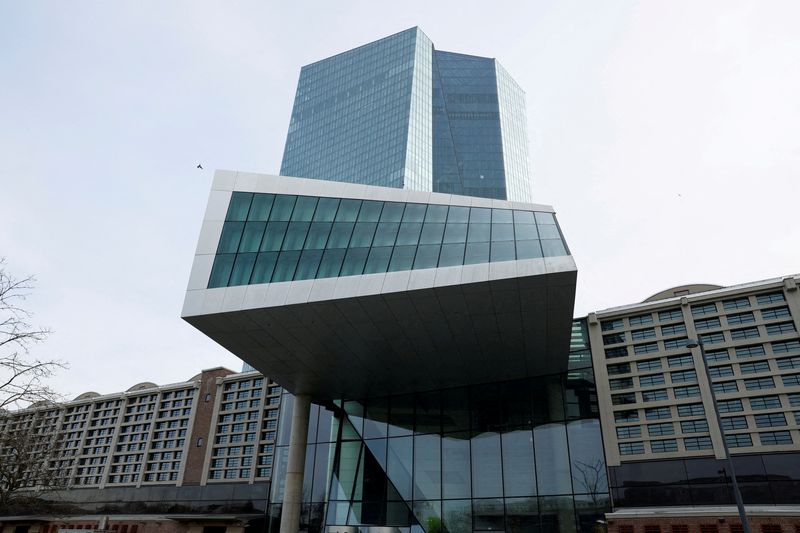Banks mask lending to polluters with PR greenwash, ECB blog says
2023.12.06 05:21

© Reuters. FILE PHOTO: A view of the European Central Bank (ECB) headquarters in Frankfurt, Germany March 16, 2023. REUTERS/Heiko Becker/File Photo
FRANKFURT (Reuters) – Euro zone banks talking the most about climate change are the biggest lenders to polluting industries and use public relations noise to mask their support, a blog post by four economists published by the European Central Bank (ECB) said on Wednesday.
The ECB has been trying and failing for years to force lenders to disclose more of their climate risk, and has threatened to increase capital requirements if they don’t.
“Banks which portray themselves as more environmentally conscious lend more than others to brown industries,” the blog post argued, after matching up public disclosures with detailed lending data. “There are insufficient incentives for banks to change their lending policies.”
The blog, written by an ECB economist and three academics, does not necessarily represent the views of the ECB, which supervises over a hundred of the euro zone’s biggest lenders.
The mismatch between communication and actual lending is especially true for new funds to smaller polluters, as these fly below the radar and would escape the public’s attention, the blog said.
Banks appear reluctant to lend to young firms that could potentially drive innovation in cleaner technologies or high-emission companies that could green their business, it added.
Lenders appear reluctant to disrupt client relationships and also seem fearful that a withdrawal of their support would threaten the financial viability of the borrower, leaving them with losses, the blog said.
This creates a loop in which polluters are kept alive by a banks looking to protect their earnings, perpetuating both the pollution and banks’ support for a dirty industry, it said.
“Banks with high environmental disclosure, indeed, tend to lend not only to brown borrowers with whom they have exclusive relationships, but also to those with limited financing options and who would be in distress if their banking relationship were terminated,” the blog said.
Banks instead prefer to keep firms alive, even though they clearly lack either the operational or financial capacity to switch to greener technologies, it said.








